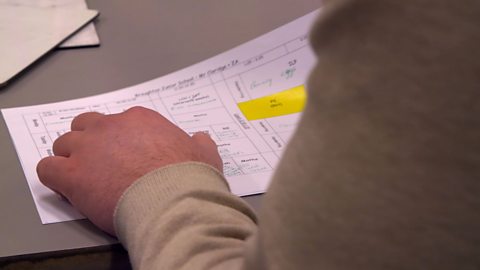
To make this work, youтАЩll need to admit defeat and accept that you simply canтАЩt do everything that is expected of you.
Teacher and education blogger Victoria Hewett, a.k.a @MrsHumanities, shares her top tips on how to reclaim your time from workload.
When you entered into the teaching profession did you think it would be such a time consumer?
Did you realise the amount of work youтАЩd end up doing outside of directed time?
Were you aware that teaching was far more than what happens in the classroom?
Weirdly enough, I did.
My mum worked in a school during my teens as a member of support staff, so IтАЩd spend my evenings there. IтАЩd see the teachers in meetings; IтАЩd see them staying behind to mark, plan and set-up; IтАЩd hear their conversations, their moans and their laughter about the dayтАЩs troubles. And yet I still wanted to teach.
However, after work experience at 15 and тАШrealтАЩ insight into the day-to-day workings, I no longer wanted to be a teacher.
Roll on seven years and I found myself applying for a PGCE, not so I could become a teacher but so I could learn to teach and find my way into environmental education. However, what I found was that despite all the work, the pressures and struggles, I loved being in the classroom. I loved creating lessons, planning learning and sharing my passion for geography. Resultingly, despite the hours and hard work, I couldnтАЩt give it up.
IтАЩm now in my eighth year of teaching and letтАЩs just say IтАЩve had a fair share of down moments which brought me close to leaving the profession, however those challenging times also taught me a lot about how to manage my time to allow me to reclaim my life, wellbeing and personal health.
Here are my top tips to help you reclaim time from workload.
╠¤


1. Categorise your time
I find that thinking about my time in terms of fixed and flexible time periods helps me to consider just how much time I have to get the things on my to-do list done.
Fixed time is that which you have little to no control over how it is spent e.g. teaching lessons, in meetings etc. whilst your flexible time is that which you can use as you wish, essentially your PPAs, breaks and before or after school.
This has helped me to set myself achievable targets for the day; for example, I know that on a day when I have 5 lessons, IтАЩm not going to achieve much from the to-do list and therefore I avoid aiming to.
In the past IтАЩd look at a 9-hour day and feel deflated when I realised IтАЩd only achieved one or two things on my list. It sounds silly, but realising that out of those 9 hours, IтАЩd only had 2-3 hours of flexible time made me feel a lot better about how little of the list IтАЩd achieved.
╠¤

2. Prioritise your tasks
The Eisenhower Matrix is a really useful tool for evaluating the importance and urgency of tasks, helping to prioritise those tasks that must be done, that can be scheduled for a later date, that can be delegated or simply deleted from the to-do list.
To make this work, youтАЩll need to admit defeat and accept that you simply canтАЩt do everything that is expected of you or that you want to do without it having an impact on your time somewhere else.
It doesnтАЩt take long to plan and prioritise how you will spend the time youтАЩve put into your тАШflexibleтАЩ category, but itтАЩs worthwhile to give you more time elsewhere.
╠¤

3. Ask yourself, is it necessary?
Once you start to use a method such as the Eisenhower Matrix to prioritise tasks, you may well find that a lot of those tasks you thought were urgent, arenтАЩt required by anyone but yourself. So, ask yourself, does it really need doing? Is it necessary for the learning and progress of your students?
Question the things you want to do:
- Do your displays really need changing or could they just do with a bit of tidying up?
- Do you really need to spend time looking for the perfect font or could you just use one single font for everything?
- Do you need to create a whizzy PowerPoint or could a slide with just the instructions on do?
- Do you need to differentiate that task multiple times or could you scaffold it instead?
- Do you need to use a wide variety of activities or could you develop a bank of templates that you frequently use?
Often as teachers, we can find ourselves striving for perfection, itтАЩs the influence of the тАШaim for outstandingтАЩ culture that has developed due to accountability and performance management. However, we need to recognise that often, good is good enough and not make more work for ourselves by striving to be constantly тАШoutstandingтАЩ.
╠¤


4. Simplify things
Simplifying my teaching, assessment and planning has worked wonders for my workload.
If IтАЩm honest I think I used to over plan lessons in my first few years, IтАЩd try to fit too much in and make lessons as exciting and engaging as possible. At times IтАЩd find myself differentiating the lesson so much that IтАЩd end up teaching three or four lessons within one lesson. It was unsustainable.
Now I simply scaffold up unless students have very specific needs that need catering for; I plan what I want my learners to take away from the lesson, the skills and content and then plan backwards to get them there.
Additionally, each lesson embeds feedback throughout, I receive feedback from the students through assessment for learning and they receive feedback from me from modelling, тАШlive markingтАЩ and discussions.
I use what I gain from this to feed forward into the next lesson meaning I donтАЩt need to mark or review their books quite as frequently as I used to.
Another feature I have found useful in helping me to simplify my lessons has been to create a template bank of go-to resources that can easily be amended to suit the task or topic.
With a template I can then amend the complexity of the task each time to scaffold and challenge, developing my learnerтАЩs independence over time.
╠¤

5. Teach yourself to be time strict
In order to make yourself time rich, you need to be time strict.
In order to do so set yourself working limits and strict time frames for tasks. For instance, in my early career days, I could literally spend hours trying to find the right resource, which ultimately, I would then end up making myself.
Now I set myself limits, 10 minutes maximum to search for a resource, if I donтАЩt find it in that time, I assume it doesnтАЩt exist and get on with creating what I had in mind giving myself another time frame to complete it.
By doing so I am able to keep things simple, avoid over complexity and make the learning the central focus. Ultimately providing myself with more time for other things.
In summary, teaching will always be time consuming, itтАЩs just one of those professions but it doesnтАЩt have to take over your life.
After learning these lessons and thanks to a supportive school, IтАЩve much more time for me and my loved ones.
You can too.
Be proactive, share solutions and find more time for you.
╠¤
If youтАЩre a teacher in need of support, call free and confidential 24/7 emotional support helpline on 08000 562 561.
The │╔╚╦┐ь╩╓ is not responsible for the content of external websites. By clicking the link to access the external website you will be redirected to a site controlled by Education Support. Please note that the │╔╚╦┐ь╩╓ is not the data controller of the personal data you enter into the external website and it is not responsible for the services provided by any external organisation. When using an external website, you are subject to their Terms and Conditions and Privacy Policy.

Teacher tips on time management. video
In this short film teachers share their approaches to time management and talk about how they manage their workload to free up time.

Teacher Support Articles. collection
All our articles for teachers in one place, sharing peer-to-peer advice and personal experiences.

тАЬI learned the hard way...тАЭ Tips from a teacher on managing workload. document
Some tips for teachers on dealing with the problem of excessive workload.
